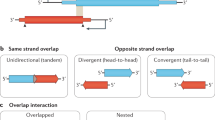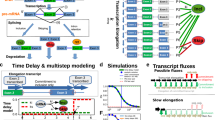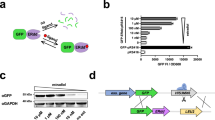Abstract
The origin of biological information is an unexplained phenomenon. Prior research in resolving the origin of proteins, based on the assumption that the first genes were contiguous prokaryotic sequences has not succeeded. Rather, it has been established that contiguous protein-coding genes do not exist in practically any amount of random genetic sequences. We found that complex eukaryotic proteins could be inherently encoded in split genes that could exist by chance within mere micrograms to milligrams of random DNA. Using protein amino acid sequence variability, codon degeneracy, and stringent exon-length restriction, we demonstrate that split genes for proteins of extant eukaryotes occur extensively in random genetic sequences. The results provide evidence that an abundance of split genes encoding advanced proteins in a small amount of prebiotic genetic material could have ignited the evolution of the eukaryotic genome.
Similar content being viewed by others
Article PDF
Author information
Authors and Affiliations
Corresponding author
Rights and permissions
About this article
Cite this article
Senapathy, P., Kumar, B., Singh, C. et al. Origin of biological information: Inherent occurrence of intron-rich split genes, coding for complex extant proteins, within pre-biotic random genetic sequences . Nat Prec (2010). https://doi.org/10.1038/npre.2010.5384.1
Received:
Accepted:
Published:
DOI: https://doi.org/10.1038/npre.2010.5384.1



